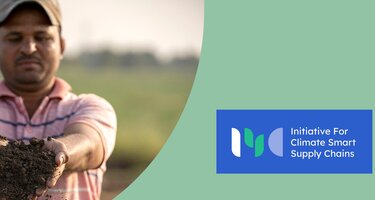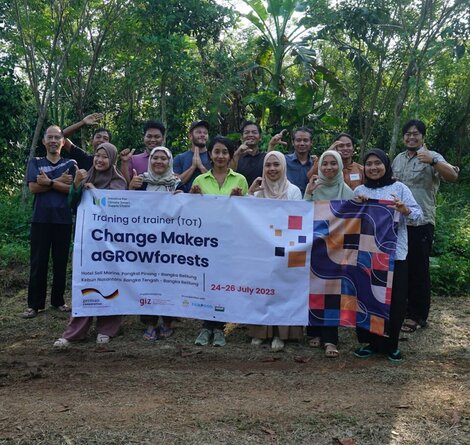Initiative For Climate Smart Supply Chains
This project is concluded and has no further possibilities for funding.
The Initiative for Climate Smart Supply Chains (I4C) is a funding program that supports innovative projects by multi-stakeholder consortia involving the private sector. Thereby, projects work on the topic of climate smart supply chains. The I4C brings together a wide range of actors along the supply chain of selected agricultural commodities and funds their cooperation projects in partner countries of the German Federal Ministry for Economic Cooperation and Development (BMZ) to combat climate change. The I4C aims at making global agricultural supply chains more climate-friendly and resilient form the shelf to the field.
As part of a call for proposals in 2022, consortia were able to apply for funding by handing in their project proposals. Currently, the following projects are being implemented:
- Low Carbon Agriculture for smallholder cocoa farmers in Ecuador
- Ensuring the sustainability of climate smart and fair coffee value chains in Ethiopia
- aGROWforests for Sustainable Spices in Indonesia
- Cotton in Agroecological Intercropping in Brazil
- HABITAR
The Initiative for Climate Smart Supply Chains was launched on behalf of the Federal Ministry of Economic Cooperation and Development (BMZ) by the GIZ Global Programme ‘Sustainability and Values Added in Agricultural Supply Chains’. The term of the Global Programme ends in 2028.
If you have any questions, please contact us at: florian.reil(at)giz.de

